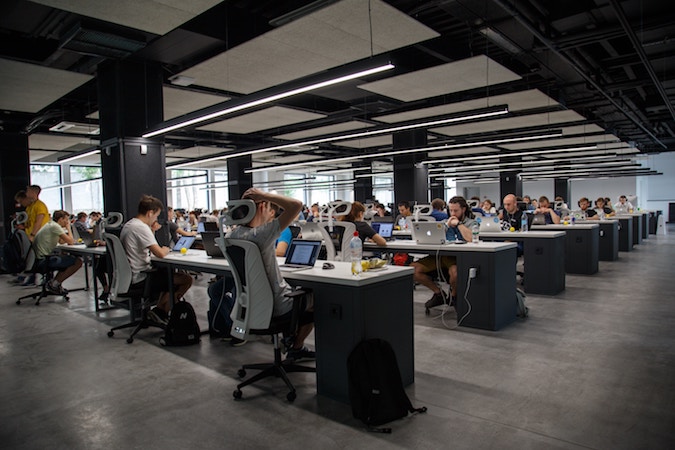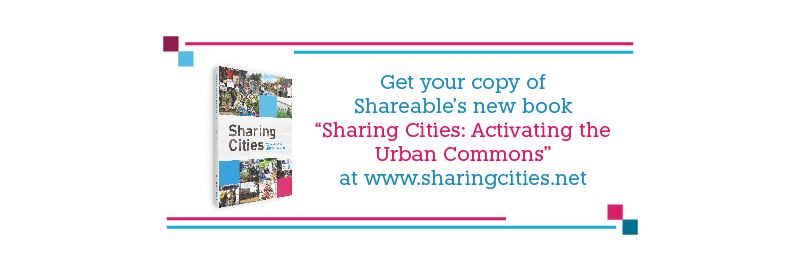New technologies, anti-labor trade liberalization, and economic instability have led to the volatile employment environment we have today. The shift to freelancing and portfolio-driven careers enabled by peer-to-peer platforms is offering extreme flexibility and an almost infinite choice to entrepreneurs who sell their services within a global marketplace. Notwithstanding that these digital service exchanges provide a lifeline to many underemployed workers, they provide little with regard to worker protection, health insurance, or even stable cash flow. People are working longer hours, for lower wages, and with less long-term income security.
Indeed, the combination of "zero hour" work contracts, transient employment, and increased global competition has significantly reduced workers' bargaining power. Add to this the fact that digital disruption is moving to reconfigure postindustrial economies as advances in robotics, machine learning, and automation promise a "Fourth Industrial Revolution” that could eliminate millions of jobs.
Creative social entrepreneurs and digital-labor advocates are developing new ways of harnessing emerging technologies in order to allocate value on a more equitable basis. The emerging platform cooperatives movement, for example, is reclaiming worker solidarity, mutualism, and collective benefit as central tenets of a new commons economy.
Meanwhile, new technologies are driving marginal costs to zero, making it increasingly easy for many products and services to become available for free across distributed and collaborative networks. This democratization and decentralization of production and consumption is giving way to new work environments. Building on these collaborative workspaces, social entrepreneurs have begun disrupting traditional business models and governance structures to create more distributive forms of value creation through shared budgeting and decision-making. —Darren Sharp and Khushboo Balwani
1. Evergreen
Cooperative Ownership and Anchor Institutions to Build Community Wealth Mainstream job-training programs are often too focused on employment opportunities that do not offer workers anything more than a wage. An alternative approach aligns public, nonprofit, and philanthropic resources to give workers real pathways to good jobs, and a stake in a democratized local economy. Based in Cleveland, Ohio, Evergreen is a network of worker cooperatives, linked together by a nonprofit holding corporation with a mission to provide jobs, dignity, and cooperative ownership opportunities to historically marginalized communities. Worker cooperatives include a green industrial laundry, a solar installation and energy efficiency retrofitting company, and a large-scale commercial greenhouse. The linked-cooperative structure has enabled innovative approaches to workforce and neighborhood development including a home-buying program that has helped a substantial portion of Evergreen's worker-owners become homeowners.
Employing over 100 people and with annual revenues of over $6 million, Evergreen has contributed to demonstrating that inclusive cooperative-driven economic development is not a utopian fantasy or a marginal niche activity, but a viable and scalable approach to fighting inequality. —John Duda
2. Library at The Dock: A Makerspace in a Public Library
The types of jobs that will last through the mass automation of work in the coming century will be those where people can apply their creative and critical thinking skills to solve complex problems with the help of technology. To give people a chance at developing these skills, the city of Melbourne in Australia has created its first makerspace. Located inside Library at The Dock, a cultural community space built into the Victoria Harbor, it runs a range of free classes to help the community learn 3D printing, Arduino essentials, video editing, and introductory coding. The library also hosts Mini Make Days that profile local maker groups from across the city and provide the public with an opportunity to discover the latest trends in the maker movement. The makerspace is staffed by a team who encourage the entire community, including young children and students, to become better makers by learning new skills that can bring to life a range of digital, electronic, and fabrication projects. —Darren Sharp
3. Platform Cooperatives: A Sharing Economy That Shares the Wealth
Among the major market disruptions introduced alongside "sharing economy" platforms like Uber and Airbnb is a systemic process of local disempowerment. The privatization of infrastructure — such as transportation and communication — has led to transfer of decision-making authority and wealth from local communities to corporate platforms and their investors. Nonetheless, the growing movement for "platform cooperativism," or the development of democratic ownership and governance of online platforms such as an app or website, offer cities an alternative to multinational corporations that supports community wealth building. Examples of successful platform co-ops include Modo, a Vancouver, Canada-based carsharing cooperative, Stocksy United, an artist-owned cooperative that sells stock-photography online, and Green Taxi Cooperative in Denver, Colorado. Learn more at the Platform Cooperativism Consortium and The Internet of Ownership —Nathan Schneider
These three short case studies are adapted from our latest book, "Sharing Cities: Activating the Urban Commons."
Header photo by Alex Kotliarskyi on Unsplash










